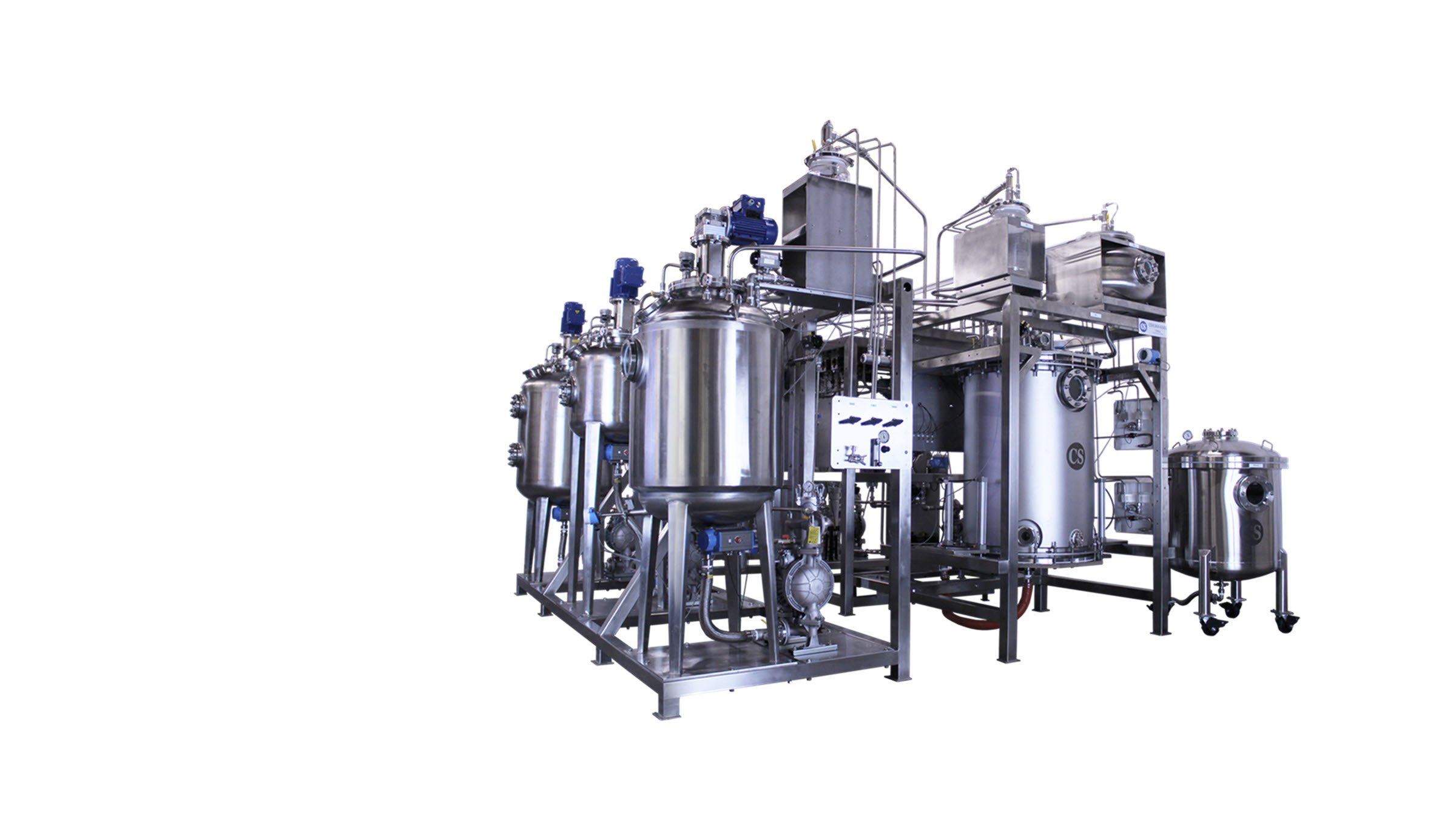A Unique Perspective
Peptides, short chains of amino acids, are found in every living organism and are increasingly synthesized commercially for a wide range of therapeutic treatments.
CSBio intimately knows peptide synthesis – from both sides of the equation. Founded in 1993, the company delivers a full portfolio of peptide synthesis instrumentation for the life sciences industry. In addition, CSBio provides custom peptides as a contract development and manufacturing organization (CDMO).
Located in Silicon Valley, California, the company is the leading global provider of peptide synthesizers.
“Our instrumentation can be found in production laboratories and pharmaceutical companies worldwide,” said Hanson Chang, senior director of instrumentation, CSBio. “And we automate our equipment at every level – from research and pilot systems to commercial scale.”
Seeking Deeper Integration for Commercial Scale
CSBio pilot and commercial-scale systems are built to order. And for more than 30 years, CSBio has delivered their modular skids equipped with a proprietary control solution.
“We developed our control system in house,” Chang said. “Every peptide is different. And at the pilot scale, our control system is used to help optimize the synthesis protocol – or peptide ‘recipe’.”
Simply put, pilot scale systems provide consistency in developing processes for commercial manufacturing. The pilot systems include reaction vessels ranging from 200ml to 5L. To accommodate large-scale peptide synthesis, commercial systems include reaction vessels that range from 5L to 800L.
While the proprietary control system delivers the performance required for research and pilots, CSBio wanted to provide customers with an option for more functionality at commercial scale.
“In a commercial setting, some customers must integrate the peptide synthesizer with the rest of the plant,” Chang explained. “They want to be able to see specific functionality within the system – for example, a motor – and control it.”
Flexible Control Based on a Modern DCS
To meet customer needs, CSBio called on Rockwell Automation LifecycleIQ™ Services for an open, flexible control solution that would easily integrate with a wide range of system architectures. CSBio specified a system that was data-driven, featured modern process control and easily incorporated manufacturing execution systems (MES).
CSBio also required the system to be batch-oriented – and support 21 CFR, Part 11 requirements for electronic records and electronic signatures.
“Pharmaceutical companies may not want to manage paper records,” Chang said. “We needed a solution that could tie controls to an individual company’s process – and support electronic batch records (EBR).”
The Rockwell Automation system is based on PlantPAx®, a modern distributed control system (DCS), leveraging familiar Allen-Bradley® technology and FactoryTalk® software. PlantPAx DCS provides a scalable and flexible platform that integrates various components of a process plant, including control systems, data acquisition, visualization and analytics.
The implementation of PlantPAx DCS was configured to support all batch operations, recipe development and batch reporting. The configured solution also integrates all instrumentation and valves associated with the peptide synthesizer skid.
The PlantPAx system was implemented for 21 CFR Part 11 compliance. And runs on an EtherNet/IP™ network, complemented by OPC UA communications.
An Enhanced Level of Performance
The PlantPAx solution promises the functionality required to easily configure new peptide synthesis recipes – and expand to include additional instrumentation and tanks as systems grow.
Thanks to EtherNet/IP and OPC UA communications, the control system can be easily connected to other enterprise operations, IIoT solutions – and MES systems.
“By adding an MES solution, customers can better manage their raw material inventory and achieve better material visibility – and traceability – throughout the process,” Chang said. “The MES can also tie to quality management systems.”
CSBio first developed the Rockwell Automation control platform in 2021 – and continues to refine the system as new needs arise.
“Our proprietary software platform is based on C++ programming – so creating a DCS solution was quite different and challenging,” Chang said. “That’s why we asked Rockwell Automation to build our initial platform.”
The ongoing refinement of the system helps ensure that CSBio can adapt to evolving needs and continue to deliver best-in-class peptide synthesis solutions.
